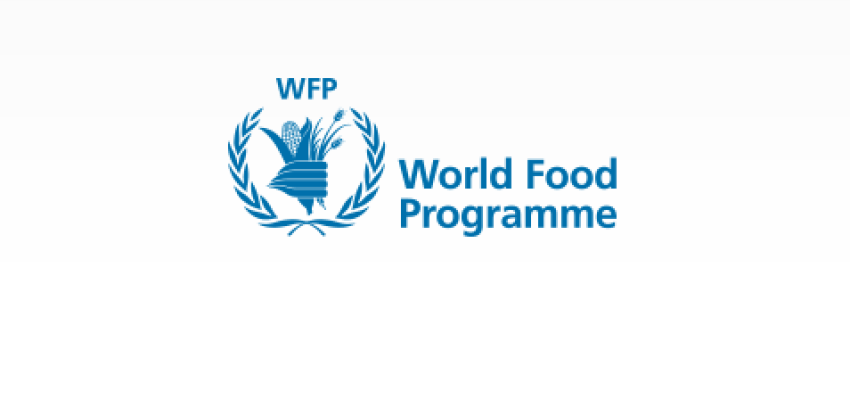Millions of families across northeast Nigeria are now on the verge of a severe crisis as the United Nations World Food Programme (WFP) warns that its emergency food and nutrition support will be suspended for 1.3 million people by the end of July, citing what it calls critical funding shortfalls. This development has sent shockwaves across Borno, Yobe, and Adamawa states, where decades-long conflict and surging violence have caused widespread hunger and displacement.
According to a statement released Wednesday on WFP’s official website, the agency urgently requires $130 million to maintain lifesaving food and nutrition operations through the end of 2025. Without this immediate injection of funding, the aid pipeline will break, and food stocks, which have reportedly already been exhausted, will not be replenished.
“WFP’s food and nutrition stocks have been completely exhausted. The organisation’s last supplies left warehouses in early July, and life-saving assistance will end after the current round of distributions is completed,” the WFP stated, expressing deep concern for the future of millions of affected Nigerians. The agency emphasised that this alarming situation comes amid “escalating violence and record levels of hunger.”
These communities have lived through the combined struggles of food shortages, mass displacement due to insurgency, and increasingly limited humanitarian support. Local reports from Maiduguri, the Borno State capital, indicate that many internally displaced persons (IDPs) in camps may soon have no option but to forage for food, rely on unsafe coping strategies, or migrate further from their homelands.
WFP further cautioned that if new funding is not secured immediately, millions of the region’s most vulnerable people will find themselves facing the impossible choices of living with severe hunger, embarking on perilous journeys to other regions, or falling prey to exploitation by extremist groups capitalising on the hardship and instability.
This dire warning comes just months after the significant United States Agency for International Development (USAID) foreign assistance budget reduction was announced during the Donald Trump administration, which reportedly slashed aid by about 92%. The impact of that cut continues to ripple across Nigeria and broader Africa, drastically reducing the scale and reach of crucial humanitarian interventions.
“The cutbacks have left agencies like WFP stretched beyond the brink,” noted Abuja-based humanitarian analyst Dr. Tope Olagunju. “When major donors pull back, it is the ordinary people in crisis zones who bear the heaviest burden.”
Across much of Nigeria’s northeast, the sectors of health, nutrition, education, and other social services have already begun to feel the strain. Health clinics, school feeding programmes, and local markets have all reported increased hardship since the funding slowdowns trickled down.
A Growing Humanitarian Emergency
David Stevenson, the WFP’s country director for Nigeria, shed more light on the scale of the crisis on Wednesday, reporting that a record 31 million people across Nigeria are now facing acute hunger, with a large portion concentrated in the northeast. “At the same time, WFP’s operations in northeast Nigeria will collapse without immediate, sustained funding. This is no longer just a humanitarian crisis; it’s a growing threat to regional stability, as families pushed beyond their limits are left with nowhere to turn,” Stevenson said.
According to WFP, children are among the most at-risk if this vital assistance halts. More than 150 nutrition clinics supported by the WFP in Borno and Yobe states are at risk of shutting down, ending lifesaving treatment for over 300,000 children under two and exposing them to increased risk of severe malnutrition and wasting. Nurses working in the clinics have told correspondents that new cases arrive daily, some children too weak to even stand.
The region’s protracted conflict, marked by attacks from extremist groups like Boko Haram and ISWAP, remains a driving force behind the mass displacement of civilians. According to the United Nations, more than 2.3 million people across the Lake Chad Basin have reportedly been forced to flee their homes, overwhelming what little resources are left in host communities.
“When emergency assistance ends, many will migrate in search of food and shelter. Others will adopt negative coping mechanisms – including potentially joining insurgent groups – to survive,” Stevenson warned. Security experts point out that desperation and lack of support play a key role in recruitment by armed groups, further fuelling the cycle of violence.
Local Perspective: IDPs Speak Out
Fatima Musa, a mother of four living in Bakassi Camp in Maiduguri, shared her growing despair: “We have already reduced our meals to once a day. If the food stops, I don’t know how we will survive. I pray the world does not forget us now.”
Community leaders have joined calls for local and international partners to step in with emergency support. A Borno traditional leader, Alhaji Ibrahim Umar, commented, “This is no time for the world to turn away. We need urgent help to keep our children alive and our young people safe.”
Historical Context and Regional Comparisons
Nigeria’s north and the Lake Chad region have long faced chronic food insecurity. Drought, armed conflict, and displacement have made the region one of the most challenging humanitarian environments in sub-Saharan Africa. Despite years of support from the international community, volatility in donor funding—a reality now heightened by global economic and political shifts—has undermined progress.
Ghana, Cameroon, Niger, and Chad have similarly faced aid shortfalls, especially around conflict and refugee influxes. According to the Intergovernmental Authority on Development (IGAD), humanitarian agencies across West Africa are experiencing record funding gaps, mirroring Nigeria’s current predicament. In Ghana and Côte d’Ivoire, where food security has been more stable, hunger rates have also risen in some communities due to economic shocks and regional instability.
What Could Happen Next?
WFP reports that so far in 2025, it has managed to deliver food and nutritional support to 1.3 million people in northern Nigeria. However, funding shortfalls now threaten planned expansion to reach an additional 720,000 people in the next half of the year. The consequences could extend far beyond immediate hunger, affecting educational outcomes, public health, and security across the region.
Local health officials in Borno have already observed rising cases of malnutrition among children and expect the figures to worsen. “Without these interventions, we risk reversing all the gains made over the last decade,” explained Dr. Halima Lawan, a Maiduguri-based pediatrician. Humanitarian NGOs have echoed similar warnings, urging private sector donors, Nigerian government bodies, and international partners to close the gap urgently.
WFP maintains that food assistance not only alleviates the most immediate suffering, but also supports broader recovery, helps stabilize local economies, and creates pathways for communities to rebuild after conflict. “This is not just an act of charity,” Stevenson asserted. “It is a necessary step to prevent even greater crises in the future.”
Voices from the Region and International Response
As the world watches, there is mounting pressure on both Nigerian authorities and the international community to respond. Various regional organisations, including ECOWAS and the Nigerian Red Cross, have called for renewed engagement and burden-sharing among donors. Some analysts, such as Lagos-based development consultant Bukola Osunde, suggest public-private partnerships and diaspora remittances could provide short-term relief, but warn that only sustained aid can prevent large-scale catastrophe.
Meanwhile, ordinary Nigerians, Ghanaians, and citizens across West Africa are asking tough questions of their leaders and international partners: How did it come to this, and who will step up to ensure the millions at risk are not forgotten?
As attention turns to urgent solutions, the fate of northeast Nigeria hangs in the balance. Can collective action avert disaster, or will funding shortfalls unleash a new wave of suffering across one of Africa’s most vulnerable regions?
What’s your perspective on the unfolding humanitarian crisis in northeast Nigeria? How can West African nations, global partners, and local champions work together to protect our most vulnerable communities? Drop your thoughts in the comments and engage in the conversation – your voice matters!
Have a story, tip, or opinion to share about humanitarian aid, life in displacement, or issues facing your community? We want to hear from you—your voice can help raise awareness and drive change! Email us at story@nowahalazone.com to submit your story or discuss story sales.
For general support or feedback, contact us at support@nowahalazone.com.
Follow us for more in-depth news and analysis on Facebook, X (Twitter), and Instagram.
Your experiences and insights could make a difference—join the conversation today!










